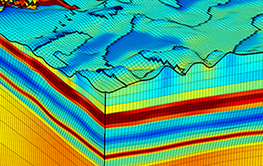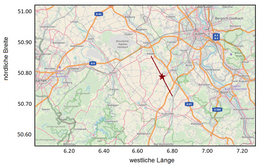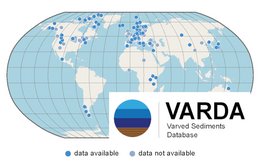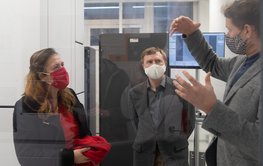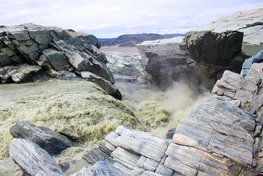Erosion processes, material fatigue or earthquakes threaten the stability of dams throughout the world. A German-Kyrgyz research team is developing an innovative early warning system.
Available as PDF: 2009 (PDF) | 2008 (PDF) | 2007 (PDF) | 2006 (PDF) | 2005 (PDF) | 2004 (PDF) | 2003 (PDF) | 2002 (PDF) | 2001 (PDF) | 2000 (PDF) | 1999 (PDF) | 1998 (PDF) | 1997 (PDF) | 1996 (PDF) | 1995 (PDF) | 1994 (PDF)
Better calculation of stress in the underground: The GFZ presents the first publicly accessible database of stress magnitudes for Germany.
International study in Science provides surprising insights into the limits of life from previously unexplored depths.
GFZ modelling: what to expect in the event of a major earthquake near Cologne contributing to the government’s “Risk Analysis in Civil Protection 2019”.
David Uhlig, former PhD student in the GFZ section Earth Surface Geochemistry, will be awarded the Potsdam Young Scientist Award 2020. Livestream today, Fr Nov 27, 7 pm.
New VARDA database as a unique tool for paleoclimatologists to synchronize climate records from annually deposited sediments in lakes around the world.
Geosciences with an atomically sharpened view: The new high-performance transmission electron microscope of the GFZ was commissioned on 24.11.2020.
The lithosphere of the Rhine Graben: is there a causative relationship between modelled mechanical stability and natural seismicity distribution?
Nivedita Sairam was honored with second place of the "Allianz Climate Risk Research Award" for her outstanding doctoral thesis on models to predict flood damage.
Data from Greenland and Antarctica show: under ice trace elements are mobilised at higher rates than previously assumed.



